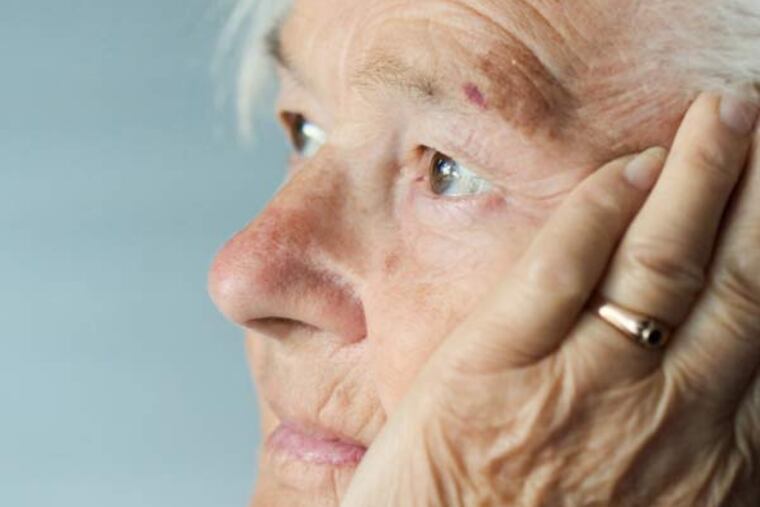Pa. court group urges changes to protect aging population
Concerned about the potential for exploitation as Pennsylvania's elderly population grows, a group appointed by the state Supreme Court has recommended wide-ranging legal changes to protect older people from neglect, abuse, and fraud.

Concerned about the potential for exploitation as Pennsylvania's elderly population grows, a group appointed by the state Supreme Court has recommended wide-ranging legal changes to protect older people from neglect, abuse, and fraud.
The 38-member group known as the Elder Law Task Force called for better training for judges about elder issues, criminal background checks for guardians, and training that includes information on ethics, a mandatory reporting requirement for financial institutions that suspect financial abuse, and an amendment to the state's Slayer Statute to prevent people convicted of abusing an elder from benefiting from their victim's estate.
Many of 130 recommendations the multidisciplinary group made recently would require new legislation. The task force also asked for funding increases but did not specify how much extra money was needed. The Supreme Court has established an Office of Elder Justice in the Court, which will begin work in January. It will be staffed by current employees. The court has also approved establishing an advisory council headed by Paula Francisco Ott, a Superior Court judge in Chester County. It will act as a liaison between the court and legislative and executive leaders.
Ott said formation of the task force was driven by Chief Justice Ronald D. Castille, who retires next month, and court administrator Zygmont Pines. She said it grew out of a recognition that demographic changes - people are living longer and baby boomers will swell the ranks of seniors - will make the legal problems of older people more pressing.
In Pennsylvania, 2.7 million people - 21.4 percent of the population - are 60 and older, according to the task force report.
Ott, who called the elderly an underserved population, said she and other judges had seen continual growth in disputes about guardianship and financial control for close to 20 years.
"Statistically, we know the population is aging," she said. "Anecdotally, we see more dysfunctional families." One recommendation to address that dysfunction is to use more mediation.
Courts and other law enforcement entities, Ott said, also need to collect better data and create more consistent systems for ensuring the rights and problems of the elderly get the attention they deserve.
Ott said many courts need better monitoring of guardians, and judges and prosecutors may need help understanding the complex physical and financial issues of the elderly or the difference between limited and full guardianship. Well-intentioned guardians need more help understanding what they've gotten themselves into.
"Let's educate these guardians," Ott said. "They come in and they don't really know what they're supposed to do. Are they intentionally doing something wrong or are they just not educated?"
Karen Buck, a task force member who is executive director of the SeniorLAW Center in Philadelphia, said guardians may not know that they have to make annual reports or that they can't comingle funds.
She said that many older people who do not need guardians can't afford the legal help they need to obtain protection-from-abuse orders, get custody of a grandchild, or fight a shady home contractor.
Many are targets of financial fraud, which is, conservatively, a $2.9 billion-a-year problem, she said.
"It's happening all over our community in all kinds of neighborhoods," she said.
The recommendation to make banks report suspicious activity is bold, she said, and likely will be controversial. Eight states and the District of Columbia have passed such legislation.
"We know that banks are on the front lines," she said. "Often, once the money is gone, it's not recoverable."
She is enthusiastic about a provision to try a pilot elder court aimed at meeting the special needs of older people. She said Philadelphia was interested in trying that.
215-854-4944
@StaceyABurling